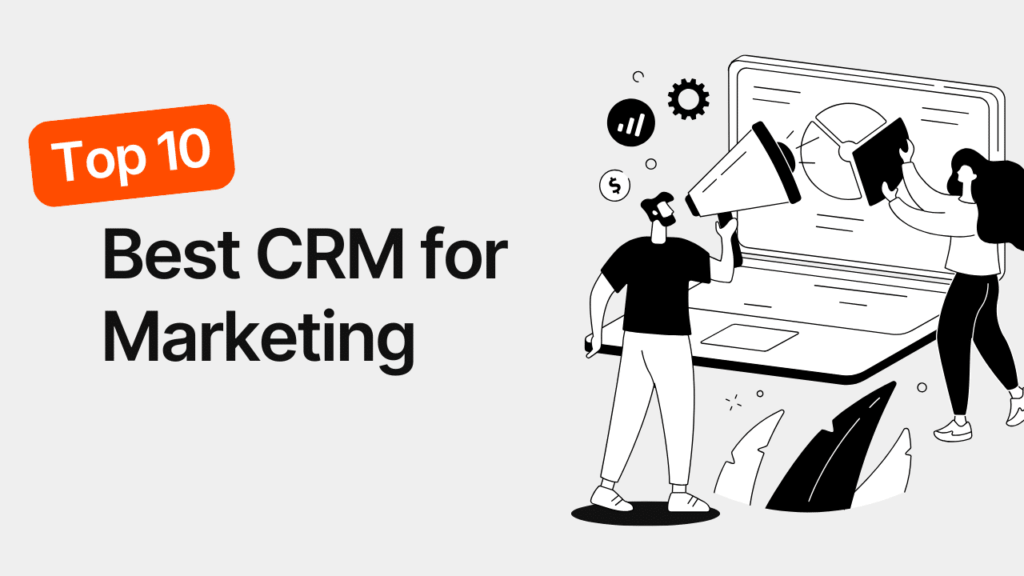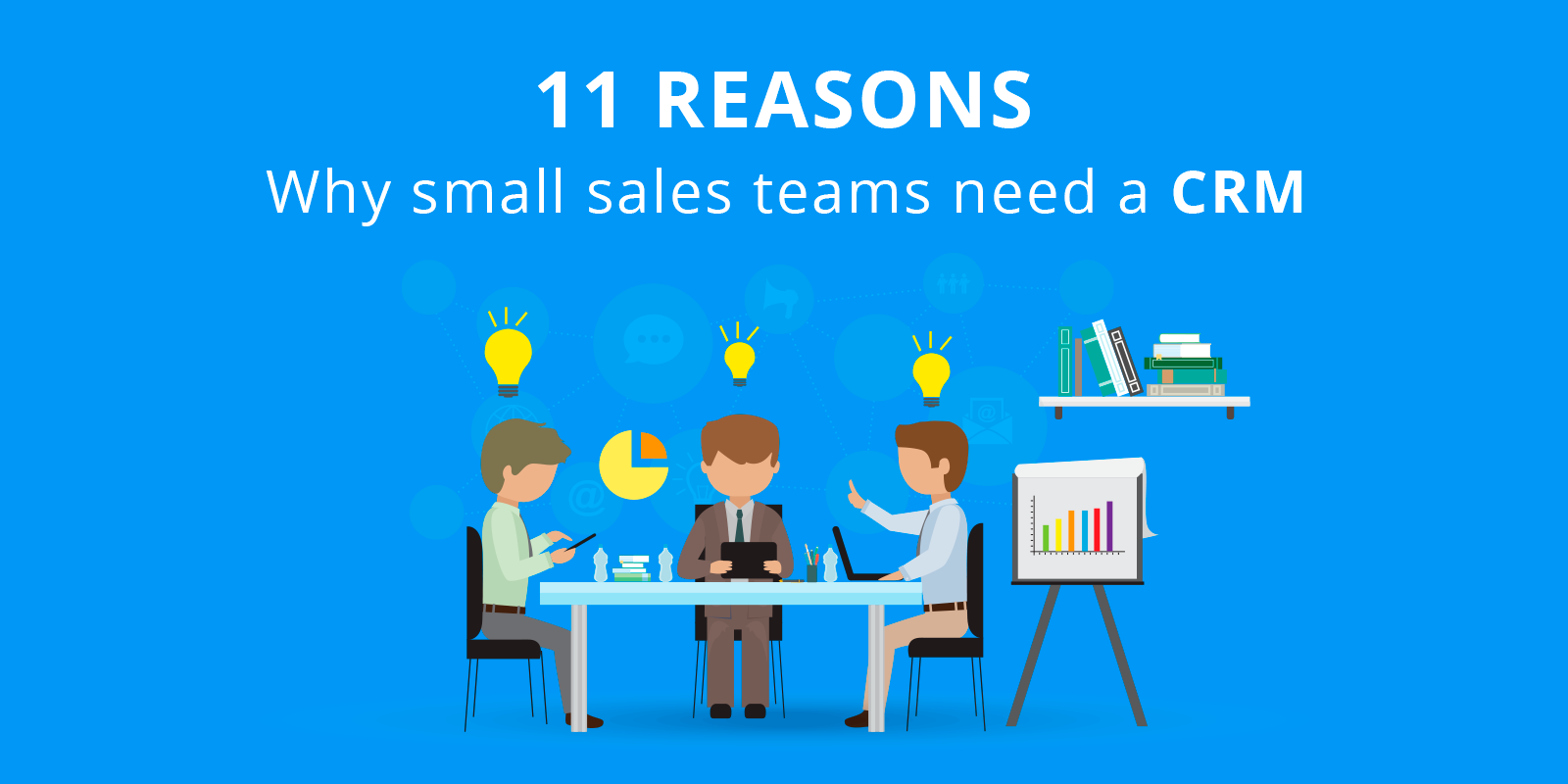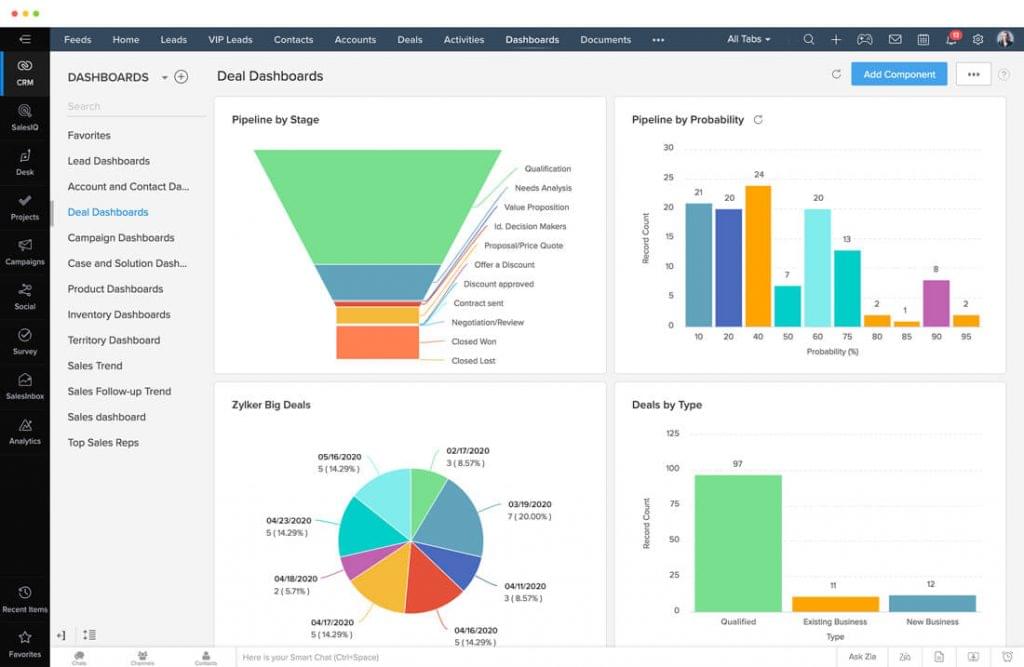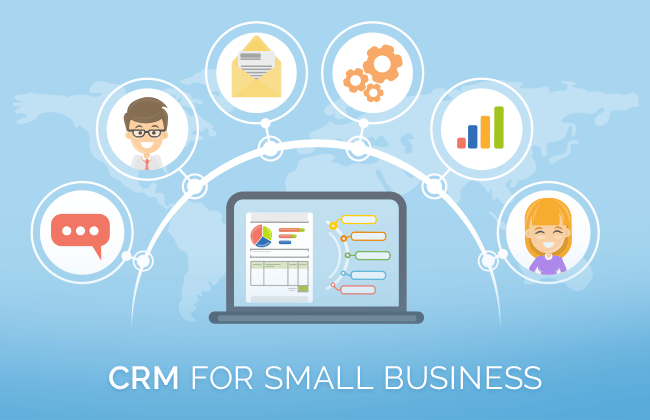
CRM Marketing for Beginners: Your Complete Guide to Customer Relationship Management
So, you’ve heard the buzz about CRM marketing, right? It’s the secret sauce that helps businesses big and small build stronger customer relationships, boost sales, and generally make life a whole lot easier. But if you’re just starting out, the world of Customer Relationship Management (CRM) can seem a little overwhelming. Fear not! This comprehensive guide is designed specifically for beginners. We’ll break down everything you need to know, from the basics to practical tips, helping you understand and implement CRM marketing strategies that actually work.
What is CRM Marketing? The Core Concept
At its heart, CRM marketing is all about understanding and nurturing your relationships with customers. It’s a strategic approach that uses data, technology, and processes to manage and analyze customer interactions throughout the customer lifecycle. Think of it as building a detailed profile of each customer, understanding their needs and preferences, and tailoring your marketing efforts to provide them with the best possible experience.
Essentially, CRM marketing focuses on:
- Collecting Customer Data: Gathering information from various sources, such as website interactions, purchase history, social media, and customer service interactions.
- Analyzing Customer Data: Using the data to identify trends, patterns, and insights into customer behavior.
- Personalizing Marketing Efforts: Tailoring your marketing messages, offers, and content to individual customer preferences.
- Improving Customer Experience: Providing seamless and consistent interactions across all touchpoints.
- Increasing Sales and Revenue: Driving sales by targeting the right customers with the right offers at the right time.
The ultimate goal? To create loyal customers who keep coming back for more. It’s about moving beyond one-off transactions and building lasting, mutually beneficial relationships.
Why is CRM Marketing Important? The Benefits Explained
Why should you care about CRM marketing? The benefits are significant and can transform your business. Here’s a breakdown of the key advantages:
Enhanced Customer Relationships
This is the cornerstone of CRM. By understanding your customers better, you can build stronger relationships. CRM systems allow you to remember key details about each customer, personalize interactions, and show that you value their business. This leads to increased customer loyalty and advocacy.
Improved Customer Satisfaction
Happy customers are repeat customers. CRM allows you to provide superior customer service by giving your team easy access to customer information, allowing them to resolve issues quickly and efficiently. Proactive communication, such as sending personalized updates or anticipating customer needs, further enhances satisfaction.
Increased Sales and Revenue
CRM helps you identify and target the most promising leads, personalize your sales pitches, and close deals faster. By tracking sales pipelines and customer interactions, you can identify opportunities for upselling and cross-selling, ultimately driving revenue growth.
Increased Efficiency and Productivity
CRM systems automate many manual tasks, such as data entry and lead assignment, freeing up your team to focus on more strategic activities. This leads to increased productivity and efficiency across all departments, from sales and marketing to customer service.
Better Data Analysis and Reporting
CRM provides a centralized repository for all customer data, making it easy to analyze trends, track performance, and generate insightful reports. This data-driven approach allows you to make informed decisions and optimize your marketing strategies for maximum impact.
Streamlined Communication
CRM systems often integrate with email, phone, and social media, providing a single platform for all customer communications. This ensures consistent messaging, prevents miscommunication, and allows your team to collaborate more effectively.
Reduced Marketing Costs
By targeting the right customers with the right messages, CRM helps you reduce wasted marketing spend. You can focus your efforts on the most promising leads and personalize your campaigns for higher conversion rates.
Key Components of a CRM System
A CRM system isn’t just a piece of software; it’s a comprehensive system that encompasses various components working together to manage customer interactions. Here are the key elements:
Contact Management
This is the foundation of any CRM. It involves storing and organizing customer contact information, including names, addresses, phone numbers, email addresses, and social media profiles. A good contact management system allows you to easily search, filter, and segment your contacts based on various criteria.
Sales Force Automation (SFA)
SFA helps sales teams manage their leads, track their progress through the sales pipeline, and close deals more efficiently. Features include lead scoring, opportunity management, sales forecasting, and task management.
Marketing Automation
Marketing automation enables you to automate repetitive marketing tasks, such as sending email campaigns, nurturing leads, and tracking website activity. This frees up your marketing team to focus on more strategic initiatives.
Customer Service and Support
This component focuses on providing excellent customer service and support. Features include case management, help desk integration, and knowledge base creation. It helps your team resolve customer issues quickly and efficiently.
Reporting and Analytics
This provides insights into your customer data, sales performance, and marketing effectiveness. Features include dashboards, reports, and data visualization tools. This allows you to track your progress, identify areas for improvement, and make data-driven decisions.
Integration Capabilities
A good CRM system integrates with other business tools, such as email marketing platforms, social media channels, and e-commerce platforms. This ensures that all your data is centralized and accessible from a single platform.
Choosing the Right CRM System for Beginners
Selecting the right CRM system can feel like a daunting task, but it doesn’t have to be. Here’s a simplified approach for beginners:
1. Assess Your Needs and Goals
Before you start looking at CRM systems, take some time to define your needs and goals. What are you hoping to achieve with a CRM? Are you primarily focused on sales, marketing, or customer service? What are your biggest pain points? Identifying your specific requirements will help you narrow down your choices.
2. Determine Your Budget
CRM systems range in price from free to enterprise-level. Determine how much you’re willing to spend on a CRM system. Remember to factor in not only the software costs but also implementation, training, and ongoing maintenance.
3. Research Available Options
There are countless CRM systems available, so do your research. Read reviews, compare features, and consider the different pricing models. Some popular options for beginners include:
- HubSpot CRM: A free, user-friendly CRM with a wide range of features, ideal for small businesses and startups.
- Zoho CRM: A versatile and affordable CRM with a strong focus on sales automation.
- Freshsales: A sales-focused CRM with a clean interface and powerful features.
- Pipedrive: A visual and intuitive CRM designed for sales teams.
4. Consider Ease of Use
For beginners, ease of use is crucial. Choose a CRM system with a user-friendly interface, intuitive navigation, and helpful tutorials. Look for systems that offer drag-and-drop functionality and customizable dashboards.
5. Evaluate Integrations
Consider which integrations are important for your business. Does the CRM integrate with your existing email marketing platform, social media channels, and e-commerce platform? Seamless integrations will streamline your workflows and ensure that all your data is connected.
6. Test Before You Buy
Most CRM systems offer free trials or demos. Take advantage of these opportunities to test the system and see if it’s a good fit for your business. This will give you a hands-on experience and allow you to evaluate the features and functionality.
7. Prioritize Scalability
Choose a CRM system that can grow with your business. As your business expands, you’ll need a CRM system that can handle increased data volume, more users, and more complex workflows.
Getting Started with CRM Marketing: Practical Steps
Once you’ve chosen your CRM system, it’s time to get started! Here’s a step-by-step guide to help you implement CRM marketing strategies:
1. Set Up Your CRM System
The first step is to set up your CRM system. This involves creating user accounts, configuring settings, and customizing the platform to meet your specific needs. Make sure to import your existing customer data, such as contact information and purchase history.
2. Define Your Customer Segments
Not all customers are created equal. Segment your customers based on various criteria, such as demographics, purchase history, and behavior. This will allow you to tailor your marketing messages and offers to specific customer groups.
3. Create Customer Profiles
Develop detailed customer profiles for each segment. Include information such as their needs, preferences, pain points, and purchase history. This will help you understand your customers better and personalize your interactions.
4. Develop a Marketing Strategy
Based on your customer profiles, develop a marketing strategy that aligns with your business goals. This may include email marketing campaigns, social media campaigns, and personalized website content.
5. Automate Your Marketing Efforts
Use your CRM system to automate repetitive marketing tasks, such as sending email campaigns, nurturing leads, and tracking website activity. This will save you time and effort, allowing you to focus on more strategic activities.
6. Track Your Results
Monitor your marketing performance and track your results. Use your CRM’s reporting and analytics tools to measure key metrics, such as conversion rates, customer acquisition cost, and customer lifetime value. This will help you identify what’s working and what’s not, allowing you to optimize your marketing efforts.
7. Provide Excellent Customer Service
Use your CRM system to provide excellent customer service. Respond to customer inquiries promptly, resolve issues efficiently, and provide personalized support. This will help you build strong customer relationships and increase customer loyalty.
8. Continuously Improve
CRM marketing is an ongoing process. Continuously analyze your data, gather feedback from customers, and make adjustments to your strategies as needed. This will help you stay ahead of the curve and maximize your results.
CRM Marketing Best Practices for Beginners
To ensure your CRM marketing efforts are successful, keep these best practices in mind:
1. Focus on Data Quality
The accuracy and completeness of your customer data are crucial. Regularly review and update your data to ensure that it’s up-to-date and accurate. This will improve the effectiveness of your marketing efforts.
2. Personalize Your Communications
Personalize your marketing messages, offers, and content to individual customer preferences. Use the data you’ve collected to tailor your communications to each customer’s specific needs and interests. This will increase engagement and conversion rates.
3. Segment Your Audience
Don’t treat all your customers the same. Segment your audience based on various criteria, such as demographics, purchase history, and behavior. This will allow you to target specific customer groups with relevant messages and offers.
4. Automate, But Don’t Overdo It
Use automation to streamline your marketing efforts, but don’t overdo it. Avoid sending generic, impersonal messages. Instead, use automation to personalize your communications and provide a more engaging experience.
5. Provide Value
Focus on providing value to your customers. Offer helpful content, exclusive deals, and personalized recommendations. This will build trust and encourage customers to engage with your brand.
6. Be Consistent
Maintain consistent communication with your customers. Send regular updates, newsletters, and promotional offers. This will keep your brand top-of-mind and encourage customers to stay engaged.
7. Measure and Analyze
Track your results and measure your performance. Use your CRM’s reporting and analytics tools to identify what’s working and what’s not. This will help you optimize your marketing efforts and maximize your results.
8. Train Your Team
Ensure that your team is properly trained on how to use your CRM system and implement your marketing strategies. This will improve efficiency and ensure that everyone is on the same page.
9. Get Feedback
Ask for feedback from your customers. Use surveys, polls, and social media to gather insights into their needs and preferences. This will help you improve your products, services, and marketing efforts.
10. Stay Flexible
The marketing landscape is constantly evolving. Be prepared to adapt your strategies as needed. Stay up-to-date on the latest trends and technologies, and be willing to experiment with new approaches.
Common CRM Marketing Mistakes to Avoid
Even with the best intentions, beginners can stumble. Here are some common pitfalls to avoid:
1. Neglecting Data Quality
Poor data quality can undermine your entire CRM strategy. Make sure your data is accurate, complete, and up-to-date. Regularly review and clean your data to avoid sending messages to incorrect or outdated contacts.
2. Over-Personalization
While personalization is important, avoid going overboard. Don’t bombard customers with irrelevant or intrusive messages. Focus on providing value and tailoring your communications to their specific needs and interests.
3. Ignoring Customer Feedback
Don’t ignore customer feedback. Actively solicit feedback and use it to improve your products, services, and marketing efforts. This will help you build stronger customer relationships and increase customer loyalty.
4. Lack of Integration
Failing to integrate your CRM with other business tools can lead to data silos and inefficiencies. Choose a CRM system that integrates with your existing tools, such as email marketing platforms, social media channels, and e-commerce platforms.
5. Not Training Your Team
If your team isn’t properly trained on how to use your CRM system, they won’t be able to use it effectively. Provide comprehensive training and ongoing support to ensure that everyone is on the same page.
6. Setting Unrealistic Goals
Don’t set unrealistic goals. Start small and gradually scale up your efforts. Focus on building strong customer relationships and providing value to your customers.
7. Not Measuring Results
If you’re not measuring your results, you won’t know what’s working and what’s not. Track your performance and use the data to optimize your marketing efforts.
8. Ignoring Mobile Optimization
More and more customers are accessing information on their mobile devices. Make sure your marketing materials are mobile-friendly. This includes your website, emails, and landing pages.
9. Focusing Solely on Sales
CRM marketing is about more than just sales. Focus on building strong customer relationships and providing value to your customers. This will lead to increased customer loyalty and advocacy.
10. Giving Up Too Soon
CRM marketing takes time and effort. Don’t give up if you don’t see results immediately. Stay patient, persistent, and continuously improve your strategies.
The Future of CRM Marketing
The world of CRM marketing is constantly evolving. Here are some trends to watch:
Artificial Intelligence (AI) and Machine Learning (ML)
AI and ML are transforming CRM marketing. They can be used to automate tasks, personalize customer experiences, and predict customer behavior. Expect to see more AI-powered CRM features in the future.
Hyper-Personalization
Customers are demanding more personalized experiences. CRM systems will continue to evolve to provide hyper-personalization, tailoring marketing messages and offers to individual customer preferences.
Omnichannel Marketing
Customers interact with businesses across multiple channels, such as email, social media, and chat. CRM systems will need to support omnichannel marketing, providing a seamless and consistent experience across all channels.
Data Privacy and Security
Data privacy and security are becoming increasingly important. CRM systems will need to comply with data privacy regulations, such as GDPR and CCPA, and provide robust security features to protect customer data.
Integration with Emerging Technologies
CRM systems will need to integrate with emerging technologies, such as the Internet of Things (IoT) and virtual reality (VR), to provide innovative customer experiences.
Conclusion: Your CRM Marketing Journey Begins Now
Congratulations! You’ve taken the first step towards mastering CRM marketing. Remember, it’s a journey, not a destination. By understanding the basics, choosing the right CRM system, implementing effective strategies, and staying up-to-date on the latest trends, you can build stronger customer relationships, boost sales, and achieve your business goals.
Start small, experiment, and don’t be afraid to learn from your mistakes. The world of CRM marketing is constantly evolving, so embrace the change and keep learning. With dedication and a customer-centric approach, you can unlock the full potential of CRM marketing and transform your business.





